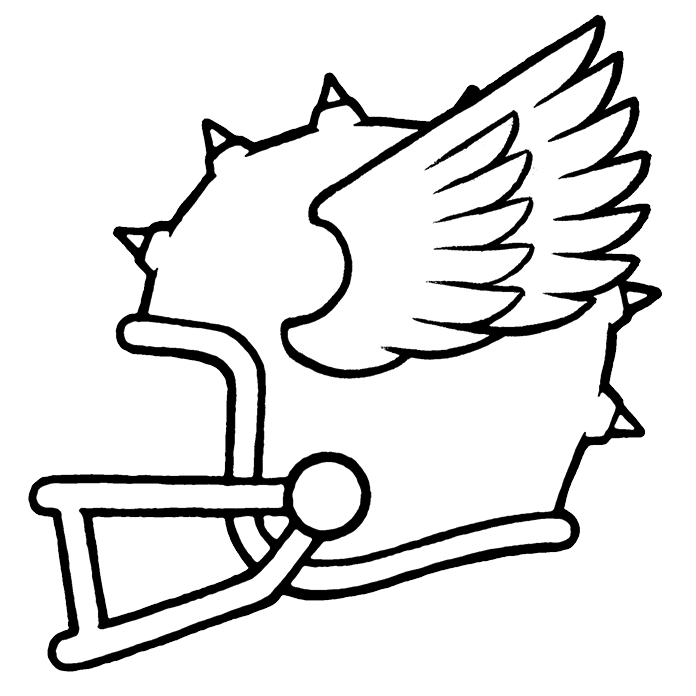
How to Become a Game Tester for Roleplaying Games, Tabletop Games, CCG, TCG Games, LARP
In the dynamic and ever-evolving world of gaming, the role of a game tester holds significant importance in ensuring the quality and enjoyment of various gaming experiences. From roleplaying games and tabletop games to collectible card games (CCG), trading card games (TCG), and live-action role-playing (LARP) adventures, game testers play a crucial role in shaping the gaming landscape. In this article, we’ll explore what it takes to become a game tester for these diverse genres, including responsibilities, skills, and the path to entering this exciting field.
What is a Game Tester?
A game tester is responsible for evaluating and providing feedback on various aspects of a game, including gameplay mechanics, graphics, audio, and overall user experience. They play a vital role in identifying bugs, glitches, and inconsistencies that could impact the enjoyment or functionality of the game.
Salary and Schedule
Game tester salaries can vary depending on factors such as experience, location, and the specific company or project. Entry-level positions may start around 30,000 € to 40,000 € per year, with the potential for higher salaries as experience and expertise grow. Schedules can also vary, with testers often working irregular hours, including evenings, weekends, and overtime during peak testing periods.
Game Tester Responsibilities
Game testers are tasked with a range of responsibilities, including:
- Playing and testing games to identify bugs, glitches, and other issues
- Documenting and reporting bugs using bug-tracking software
- Providing feedback on gameplay mechanics, controls, and overall user experience
- Collaborating with developers, designers, and other team members to address issues and improve game quality
Game Tester Skills
To excel as a game tester, several key skills are essential:
Ability to Analyze:
Game testers must possess strong analytical skills to effectively identify and troubleshoot problems within a game. They must be able to critically assess gameplay mechanics, user interfaces, and other aspects of the game to pinpoint areas that may require improvement or fixing.
Passion for Gaming:
A genuine passion for gaming is essential for game testers, as it drives their motivation and enthusiasm for the testing process. Testers who are truly passionate about gaming are more likely to approach their work with dedication and diligence, striving to ensure that the game meets the highest standards of quality and enjoyment.
Initiative:
Testers should demonstrate initiative by proactively seeking out and addressing issues, even when they may not be immediately apparent. They should be proactive in identifying potential problems and proposing solutions, contributing to the overall improvement of the game.
Communication:
Clear and concise communication skills are crucial for game testers, as they need to effectively document and report bugs, as well as provide feedback to the development team. Testers must be able to articulate their findings and recommendations in a manner that is easily understood by others, facilitating collaboration and problem-solving.
Team Player:
Collaboration and teamwork are vital for game testers, as they often work closely with developers and other team members to achieve common goals. Testers must be able to collaborate effectively with others, share information and ideas, and contribute to a positive and productive work environment.
Computer Skills:
Familiarity with computers, gaming consoles, and related software is necessary for game testers to navigate testing environments and bug-tracking systems. Testers should be comfortable using various tools and technologies to execute test cases, log bugs, and provide feedback to the development team.
Social and Communication Skills:
In addition to written communication, game testers must also possess strong interpersonal skills to effectively communicate with team members and developers. They should be able to collaborate effectively, resolve conflicts, and build positive working relationships with others.
Logic and Interpretation Skills:
Testers must possess strong logic and interpretation skills to understand and interpret game mechanics, rules, and logic. They should be able to identify potential problems or inconsistencies within the game and provide insightful analysis and feedback to the development team.
Attention to Detail:
Meticulous attention to detail is essential for game testers, as they are responsible for thoroughly testing all aspects of the game and identifying even the smallest bugs or glitches. Testers must be diligent in their work, ensuring that no issues go unnoticed and that the game meets quality standards.
Organized:
Good organizational skills are important for game testers to manage their workload effectively and prioritize tasks efficiently. Testers must be able to juggle multiple testing assignments, meet deadlines, and stay organized amidst the fast-paced nature of game development.
Perseverance:
Persistence and resilience are necessary qualities for game testers, as they often encounter challenges and setbacks during the testing process. Testers must be able to persevere in the face of adversity, remaining focused and determined to overcome obstacles and ensure the success of the game.
Summary:
- Ability to Analyze: Game testers must have strong analytical skills to identify and troubleshoot problems effectively.
- Passion for Gaming: A genuine love for gaming is crucial, as it fuels motivation and enthusiasm for the testing process.
- Initiative: Testers should be proactive in seeking out and addressing issues, even when they’re not immediately obvious.
- Communication: Clear and concise communication skills are essential for documenting and reporting bugs and providing feedback to the development team.
- Team Player: Collaboration and teamwork are vital, as testers often work closely with developers and other team members to achieve common goals.
- Computer Skills: Familiarity with computers, gaming consoles, and related software is necessary for navigating testing environments and bug-tracking systems.
- Social and Communication Skills: Ability to communicate effectively with team members and developers is crucial for conveying feedback and addressing issues.
- Logic and Interpretation Skills: Testers must be able to interpret game mechanics and logic to identify potential problems or inconsistencies.
- Attention to Detail: Meticulous attention to detail is essential for thoroughly testing all aspects of a game and identifying even the smallest bugs or glitches.
- Organized: Good organizational skills help testers manage their workload effectively and prioritize tasks efficiently.
- Perseverance: Persistence and resilience are necessary qualities for navigating the often challenging and repetitive nature of game testing.
How to Become a Game Tester
- Earn a Relevant Degree: While not always required, a degree in computer science, game design, or a related field can provide valuable skills and knowledge for aspiring game testers. Earning a relevant degree can provide aspiring game testers with a solid foundation in key areas of knowledge and skills necessary for success in the field. While not always required, a degree in computer science, game design, or a related field can offer valuable insights into game development processes, software testing methodologies, and industry standards. A degree in computer science provides a comprehensive understanding of programming languages, software engineering principles, and computer systems architecture, which are essential for understanding the technical aspects of game testing. Courses in data structures, algorithms, and software testing can equip students with the analytical and problem-solving skills needed to identify bugs and issues in game software. Similarly, a degree in game design or a related field offers specialized training in game development processes, game mechanics, and storytelling techniques. Students learn about game design principles, level design, character development, and game testing methodologies, preparing them for roles in game testing and quality assurance.
- Consider Alternative Certifications: Explore certifications available on platforms like ICANDO or IKANDU, which offer specialized training in game testing and quality assurance. In addition to traditional degree programs, aspiring game testers can explore alternative certification options to enhance their skills and credentials in game testing. Platforms like ICANDO or IKANDU offer specialized training and certification programs specifically tailored to the needs of game testers and quality assurance professionals. These certification programs cover a range of topics, including software testing techniques, bug tracking and reporting, quality assurance processes, and industry best practices. Participants gain hands-on experience through practical exercises, case studies, and real-world simulations, preparing them for the challenges of game testing in a professional environment. By obtaining certifications from reputable organizations like ICANDO or IKANDU, aspiring game testers can demonstrate their proficiency and commitment to excellence in game testing, making them more competitive in the job market.
- Explore Apprenticeship Options: Engarde.lt offers apprenticeship opportunities where aspiring game testers can gain hands-on experience and mentorship from industry professionals. Apprenticeship programs offer aspiring game testers the opportunity to gain hands-on experience and mentorship from industry professionals. Platforms like Engarde.lt provide apprenticeship opportunities where individuals can work alongside experienced testers and developers, learning valuable skills and insights into the game development process. During an apprenticeship, participants have the chance to work on real-world projects, collaborate with interdisciplinary teams, and receive feedback and guidance from mentors. This immersive learning experience allows apprentices to develop practical skills, build professional networks, and gain valuable industry experience, positioning them for success in their careers as game testers.
- Gain Work Experience: Seek out internships, part-time positions, or freelance opportunities to gain practical experience in game testing. Seeking out internships, part-time positions, or freelance opportunities is another valuable way to gain practical experience in game testing. Many game development studios, software companies, and quality assurance firms offer internships or entry-level positions for aspiring testers. Internships provide hands-on experience in a professional setting, allowing individuals to apply their skills and knowledge in real-world scenarios. Interns work closely with experienced testers and developers, participating in testing activities, documenting bugs, and providing feedback on game software. Part-time or freelance opportunities offer flexibility and autonomy, allowing individuals to work on testing projects remotely or on a contract basis. These positions provide valuable experience and exposure to different types of games, platforms, and testing methodologies, helping individuals build a diverse portfolio of work.
- Continue Developing Your Skills: Stay updated on industry trends, technologies, and best practices by participating in workshops, online courses, and professional development opportunities. Staying updated on industry trends, technologies, and best practices is essential for success in the field of game testing. As technology evolves and new gaming platforms emerge, it’s important for testers to stay informed and adapt to changing trends and methodologies. Participating in workshops, online courses, and professional development opportunities is a great way to continue developing your skills and expanding your knowledge base. Platforms like Coursera, Udemy, and LinkedIn Learning offer a wide range of courses and tutorials on topics related to game testing, software development, and quality assurance. By investing in ongoing learning and skill development, aspiring game testers can stay ahead of the curve and remain competitive in the ever-changing gaming industry. Continuing education also demonstrates a commitment to professional growth and excellence, which can enhance career prospects and opportunities for advancement in the field of game testing.
Conclusion
Becoming a game tester for roleplaying games, tabletop games, CCG, TCG games, and LARP adventures requires a unique blend of skills, passion, and dedication. By honing your analytical abilities, communication skills, and attention to detail, you can embark on a rewarding career in game testing. Whether you’re just starting your journey or looking to advance in the field, the opportunities for growth and development in game testing are boundless.



